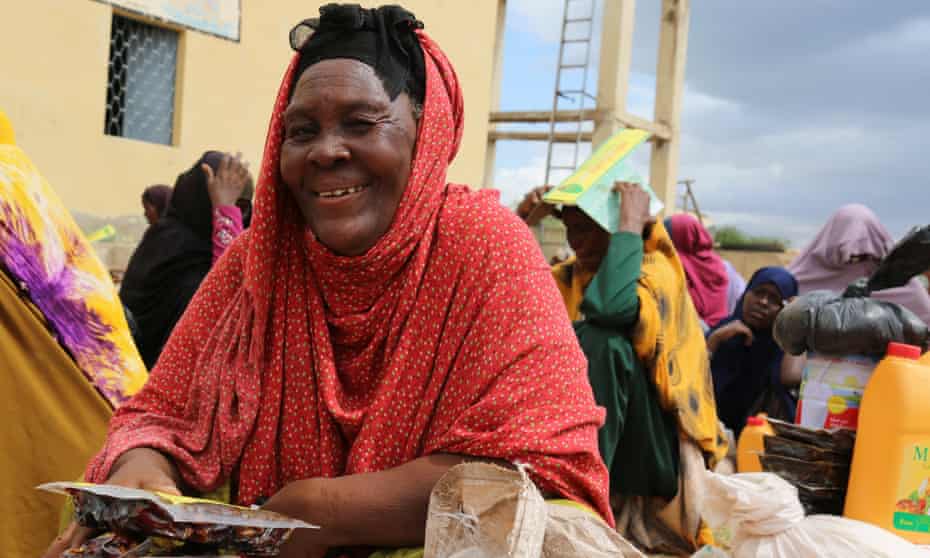Having worked in the vibrant township for over 20 years and being involved with the community in various projects, the Johannesburg doctor has fallen in love with the township and its people.
“Soweto is a very special place for me,” says Bhorat.
“I trained here, and did my internship at Chris Hani Baragwanath hospital and been in practice for over 20 years in Soweto. It is a vibrant community whose contribution to the anti-apartheid struggle is epitomised by the June 16 uprising, yet has such a deeper rich history.
“I have been the chairman of the Soweto Rugby Club in the past, and I am struck by the talent and inspiration of the young people. The people have a great story to tell, and I am glad to be a small part of that story.”
Aside from assisting the community as a doctor, Bhorat has also worked on various projects to empower the community.
One of them is the Nur ul Soweto programme, which Bhorat holds very close to his heart.
The programme, which has been running for two decades, has helped feed hundreds of struggling families during the holy month of Ramadaan and has also provided both young and old Muslims in Soweto with a Madressah (Muslim school).
“Nur ul Soweto feeds over 150 families over Ramadaan, with both Sehri (meal eaten before sunrise by Muslims during Ramadaan) and Iftaar (meal eaten by Muslims after sunset during Ramadaan) meals,” says Bhorat.
“The madressah teaches young Muslims daily after school, and older reverts at adult classes in the evenings having employed a full time teacher, while providing transport to madressah for the little ones.
“The program also offers bursaries to students for school and further studies as well as funding Eid functions (both Eid ul Fitr and Eid ul Adha Qurbani) and end-of-year functions. The community has grown, however it still remains a very poor community with limited resources.”
Ramadaan began on Wednesday and, Bhorat and his team at Nur ul Soweto have kicked-off their drive to assist families.
“This year, we will be distributing hampers for the month that will allow the families to enjoy the meals amongst their families without promoting large gatherings of people. In the past, the evening meal was done in congregation after the dusk prayer and large meals were cooked and prepared and enjoyed as a community.
“With Covid-19 though, the decision was made to rather prepare hampers for the families so that they can have their morning and evening meals in their family groups.”
The holy month of Ramadaan is regarded as the most sacred month of the year for Muslims. Muslims fast every day from sunrise to sunset.
It is meant to be a time of spiritual discipline — of deep contemplation of one’s relationship with God, extra prayer, increased charity and generosity, and intense study of the Quran.
“It is one of the foundations of Islam to feed those in need, and Ramadaan highlights to all those fasting the difficulties that many in society experience on a daily basis. By one fasting and feeling hunger all day, we can appreciate what we have, and also develop empathy for those who don’t have. It is an important aspect of the religion to care for those around you.
Bhorat says the hampers cost R600 per pack, and the foundation will be providing two packs per family per month.
“The meals are sponsored by friends and family as it is considered a great reward to feed a fasting person or a needy person.”
He says while the programme was established to support and assist Muslims who are in need in Soweto, they try to assist as many people as possible across all religions.
Bhorat says it was initially started by a Muslim leader in the community, Saleem Dlamini.
“Sheikh Saleem Dlamini started a programme to teach people about Islam at his home, and subsequently began feeding those students in Ramadaan. As the numbers grew, I offered to assist him financially and hence Nur ul Soweto was born.”
While still small, the Muslim community in the township has grown tremendously.
“The progammes undertaken includes Ramadaan feeding programmes, an ongoing madressah and community fundraising Iftaar and awards evenings.”
The programme feeds around 150 families each year.
“There are over 150 families supported with the Iftaar programme yearly. In addition, the feeding has been extended to many of the poorest in the community as well.”
Bhorat says the most rewarding part of this journey is hearing from those who have been helped.
“The stories of their journeys, turning to Islam and walking away from drugs and alcohol and how that has impacted on their familes is inspiring and makes us feel positive about Soweto and the role Nur ul Soweto has played in the community. I remember a young Muslim with a heart wrenching story. He chose to become a Muslim after watching the movie, Malcolm X.
“He was thrown out by his family onto the street and his father disowned him. He found himself at the local mosque and continued his quest to learn more. He found role models in Sheikh Saleem and others, stopped drugs and alcohol and his involvement in gangs and crime and just tried to be the best Muslim he could be. Over time, his family came to see this positive change, and he later became his father’s pride and joy as his father saw the positive impact the religion had on his son.
“He would tell the neighbourhood children to become like his son. It has become so important that the positive impact religions have on society be supported and told.”
** For those interested in assisting with the Nur Ul Soweto project, bank details are as follows:
